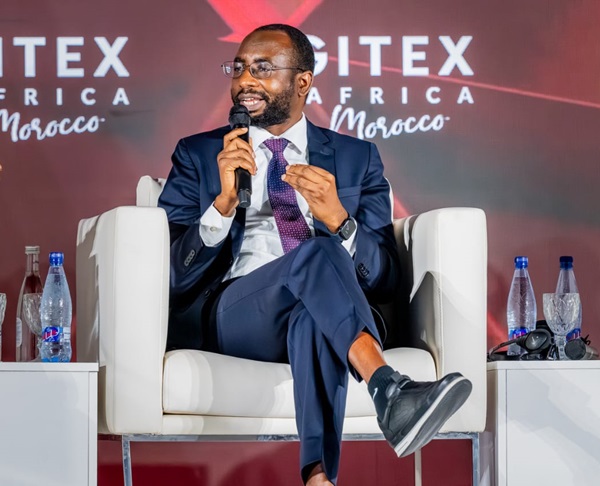
The director-general of the National Information Technology Development Agency (NITDA), Mallam Kashifu Abdullahi has called on African leaders and organisations to strategically integrate artificial intelligence (AI) into their business and operational models to drive innovation, improve decision-making and position the continent at the forefront of the global AI revolution.
Abdullahi made this appeal during a panel session titled “Harnessing AI for Strategic Leadership” at the Main Stage of GITEX Africa 2025 in Marrakech, Morocco. The session explored how data-driven and intelligence-led strategies can transform business models, optimise resources and open new opportunities across nations through AI-enabled processes.
Addressing a diverse audience of policymakers, investors, and tech leaders, Inuwa emphasized Africa’s unique opportunity to become a rising force in the global AI landscape. He positioned Nigeria as a key driver of a people-centric and strategy-first approach to AI development and governance.
“To be effective in today’s fast-paced world, leaders must evolve into AI-driven leaders,” he stated. “We must see AI not just as a tool, but as a partner in leadership – one that augments our ability to think, decide and deliver with speed and precision.”
According to Abdullahi, the shift toward AI leadership requires rethinking traditional processes and skill sets. “AI is changing the value of skills and how we work. Strategic leadership today requires co-intelligence – bringing people and computers together to execute a leader’s vision,” he said.
He outlined four core principles for harnessing generative AI effectively: Invite AI to the table by assigning it real roles in organisational workflows, maintain human oversight to correct bias and ensure accountability, design with guardrails to uphold privacy, ethics and inclusivity.
Embrace continuous improvement, recognising that today’s AI is the least capable version we will ever use.
Abdullahi stressed the importance of inclusive data, warning that AI models trained on incomplete or non-representative datasets could perpetuate inequality. “If your data doesn’t see a community, your AI system won’t see it either,” he warned. “We must ensure that all cultures and communities are digitally visible.”
To support responsible and adaptive AI governance, Abdullahi introduced NITDA’s Regulatory Intelligence Framework, built on three pillars: awareness, intelligence and dynamism.
“As regulators, we must be aware of our environment, be intelligent in interpreting data, and dynamic in our response to change,” he explained.
The framework combines two approaches to regulation: a rule-based model that sets clear guidelines for compliance, and a non-rule-based model that encourages experimentation through use cases, from which guardrails and best practices are developed. “The latter is often more effective in managing emerging technologies like AI,” he noted.
Looking ahead, Abdullahi painted an optimistic picture of Africa’s AI-powered future. He envisioned a continent where AI is deployed to address real-world challenges across agriculture, health, education, and financial services – effectively leapfrogging development gaps and accelerating inclusive growth.
“We missed the first, second, and third industrial revolutions,” he said. “But this fourth one, we must lead – not follow.”
Abdullahi underscored that AI can amplify human potential, drive efficiency, and stimulate innovation at unprecedented levels if Africa adopts it with purpose, leadership and inclusiveness.
Other notable panelists included Kenya’s Special Envoy on Technology, Philip Thigo; CEO of Pesalink, Gituku Kirika and OpenAI’s head of Africa, Emmanuel Lubanzadio. They shared insights and case studies on how African nations can shape a people-centered, ethically grounded AI future.
GITEX Africa 2025, one of the continent’s premier tech and innovation gatherings, continues to spotlight digital transformation as a cornerstone of Africa’s development vision. As the conversation around AI grows, leaders like Abdullahi are pushing for bold, strategic steps to ensure Africa is not left behind.


